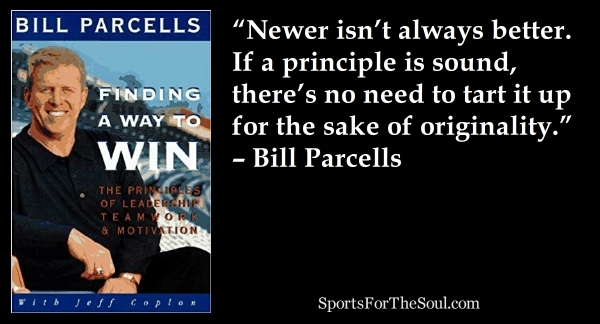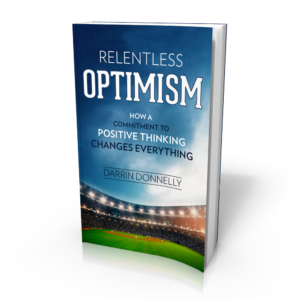 Bill Parcells is one of the most successful coaches in the history of pro football. The Hall-of-Famer led the New York Giants to two Super Bowl championships before engineering quick turnarounds with the Patriots, the Jets, and the Cowboys.
Bill Parcells is one of the most successful coaches in the history of pro football. The Hall-of-Famer led the New York Giants to two Super Bowl championships before engineering quick turnarounds with the Patriots, the Jets, and the Cowboys.
To this day, Parcells is the only coach in NFL history to take four different teams to the playoffs.
Parcells always adapted to his personnel and his opponents, but he also believed that mastering the fundamentals and keeping his strategy as simple as possible was much more important than constantly chasing whatever was new and trendy in the game of football…
Pro football is continually changing. Certain coaches and teams have put their signature on various fronts and formations. Most football fans have heard of the Houston veer, the flex, the West Coast offense, the wishbone, the monster defense, etc.
When deployed effectively, all of these innovations have helped teams win. But newer isn’t always better.
In New York, we did very well with a “lane” system derived from Bud Wilkinson’s Oklahoma defense of the 1950s. If a principle is sound, there’s no need to tart it up for the sake of originality.
Football is an intricate game, but I like to keep our strategy as simple as we can.
Several years ago, the Giants were manhandling the Jets in our annual preseason game. By the fourth quarter, the wolves are loose—we’re playing the Jets to pass on every down. One of our linebackers sacks Ken O’Brien, the Jets’ young quarterback. We call the same defense, and our guy knocks O’Brien down again; he gets rid of the ball, but just by a miracle.
Then, all of a sudden, my defensive coordinator, Bill Belichick, switched the defense so that our linebacker is no longer rushing. When I ask him what he’s doing, Bill says, “I wanted to change up the coverage.”
Bill is one of the brightest men I know, but sometimes we get caught up in our own creativity and outsmart ourselves.
If they can’t hit your fastball, you throw it till you get twenty-seven outs, then you get to go home.
Winners don’t need to be recognized as brilliant; they strive to be dominant.
– Bill Parcells, from his book Finding a Way to Win
The willingness to adapt to changing conditions is a key to success in any endeavor. However, chasing after whatever is new and trendy simply because it’s new and trendy is not a good idea.
As Bill Parcells says, just because something is new doesn’t necessarily make it better.
Don’t misunderstand this message. Change is a part of life and you have to be constantly open to changing circumstances and new trends if you want to stay ahead. If something you’ve been doing stops working or if you find a better, more efficient way to accomplish your goals—by all means, implement the necessary changes.
The message here isn’t that you should stop trying new things; the message is to remember that newer isn’t always better.
Experiment, adapt, and reassess; but don’t lose focus of the fundamental principles that lead to success.
When it comes to improving yourself, I believe that it’s much more important to constantly reinforce the time-tested and proven “old school” principles of success than it is to chase after whatever new self-help fad is popular at the moment.
Diet trends are a perfect example. They change fast and often. The high-carb, low-fat diet craze did a 180 and gave way to the low-carb, high-fat diets that are popular today. I’m not a dietitian, but my hunch is that either diet can “work” as long as it results in fewer calories consumed.
An example in the self-help industry right now is the mindfulness meditation craze. I’m not about to discount the positive effects anyone has had by implementing these “new” meditation techniques, but research shows that the positive effects of meditation on your brain and health aren’t all that different from old-fashioned contemplative prayer.
The point is, the quest for shortcuts and the latest and greatest “life hacks” can sometimes distract you from what you already know works. It can lead you away from the fundamentals of success that you know you can rely on (fundamentals that require patience and discipline—two words most people don’t like hearing).
Be open to change, but don’t rush to try something new solely because it’s new. When we’re constantly chasing whatever is new and popular, we never have the chance to master the fundamentals that we know will work.
Master the fundamentals first, then adapt as necessary.






